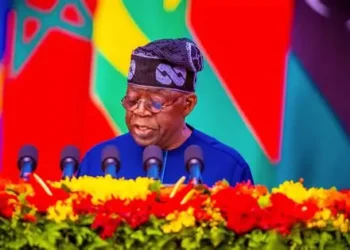In recent days, news about the trip of African leaders to Ukraine and Russia in order to communicate with the heads of state there about the conditions for peace between the two countries caught the attention of the public. The reason for the mission was quite obvious and pragmatic: Africa is greatly affected by the negative economic impact of the war, especially in terms of grain and fertilizer supplies from Ukraine and Russia.
The issue being discussed was the mission of statesmen from Africa, who are also dealing with their own internal conflicts. Significant words from one South African analyst stated that the conflict in Eastern Europe directly threatens the entire African continent, even more so than the conflict in Sudan. However, the mission was not even coordinated by the African Union, which has economic development of the entire African continent in its portfolio. The composition of the participants in the peace mission also raised questions. It was led by the South African President and included the Presidents of Senegal, Zambia, and Comoros, as well as top officials from Egypt, Congo (Brazzaville), and Uganda. However, the heads of state of Egypt, Uganda and Congo canceled their participation in the mission at the last minute.
Why is the mission being questioned? The South African President called it a historic milestone because it was the first peace mission of African leaders outside the African continent. However, some observers questioned whether such a mission had the ability to contribute to bringing the warring parties to the negotiating table, or whether it was merely a matter of increasing visibility, specifically for the South African President who initiated the mission, or a distraction from domestic problems. Both leaders, Zelensky and Putin, emphasized before and during the mission that they would not sit down at the negotiating table without insisting on their own terms.
Why should the mission have its significance? It is not appropriate to deny the efforts of African leaders for a diplomatic solution to the conflict and perhaps also their efforts to gain visibility. We believe that the African leaders relied on the fact that the Russian President could not refuse to accept them. Russia has supporters in many African countries, and the Russian narrative regarding the conflict in Ukraine still resonates with them.
According to observers, representatives of at least three participating countries are apparently not neutral in the conflict, as they are allies of Russia either as recipients of arms supplies (Egypt and Uganda) or South Africa through the BRICS grouping. However, it should be noted that during the vote at the UN General Assembly in February 2022 regarding the condemnation of the Russian invasion of Ukraine, South Africa, Uganda, and Congo abstained.
Therefore, we see the importance of the mission in the fact that the resolution of the war in Ukraine is not insignificant on a global scale. If the mission opened up space for its continuation, then it is hoped that it helped its participants understand who is the culprit and who is the victim.









